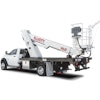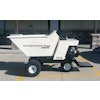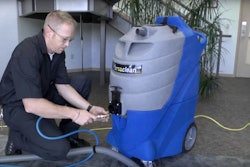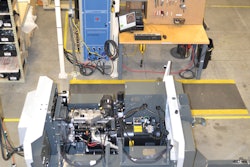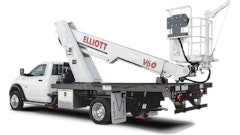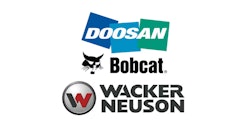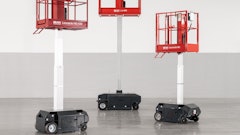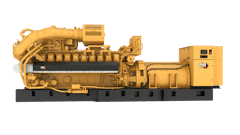
Toro Co. announced the promotion of 30-year veteran Richard Olson to the role of chief executive, nearly one year after he was appointed president and chief operating officer.
Olson will succeed long-time CEO Michael Hoffman effective Nov. 1, company officials said.
Hoffman — who 39 years ago joined the maker of lawn mowers, leafblowers, snowplows and construction equipment and has been CEO since 2005 — will remain chairman of the board.
“Serving our employees and customers as Toro’s chief executive officer has been the greatest privilege of my career,” Hoffman said in a statement on Tuesday. “Looking forward, I am pleased and confident in passing the responsibilities of chief executive on to such a strong and tested leader as Rick Olson. His extensive experience, intelligence and commitment to our company’s core values make him an ideal candidate for his new role.”
Olson joined Toro in 1986 as its manufacturing process engineer. He has since held positions such as manager of advanced manufacturing, commercial engineering program manager, director of Toro’s Shakopee plant operations and managing director of northern manufacturing operations.
Olson became the general manager in 2010 and then vice president of the Exmark division in 2011. In 2012, he was named vice president of Toro’s international business. In 2014, he was elected group vice president of international business, micro-irrigation and distributor development.
Last September, he was promoted once again, this time to president. Many analysts at the time predicted his promotion meant that he would become Hoffman’s successor.
Toro’s stock closed Tuesday at $90.55, up 6 cents. The news of Olson’s appointment was released after the markets closed.
Under Hoffman, Toro made a bold acquisition of the Boss snowplow division plus two other key purchases that gave the Bloomington-based giant a nice footing in the light-construction-equipment market. Analysts also praised Hoffman for new product introductions and for expanding Toro’s micro-irrigation product offerings in the wake of fires, water shortages and the need to conserve water on farms worldwide.
During the last five years, Toro’s stock has jumped from $25.72 a share to a high last week of $91.26.
While Toro, with $2.4 billion in 2015 revenue, has long been a Wall Street darling, there is work to do. Toro’s second-quarter report in May showed lackluster sales growth and short-term inventory problems that came after a mild winter that dulled orders for Toro’s snowplow division. The same quarter, however, also came with earnings increases amid productivity gains, pruned costs and improved pricing of raw materials.
